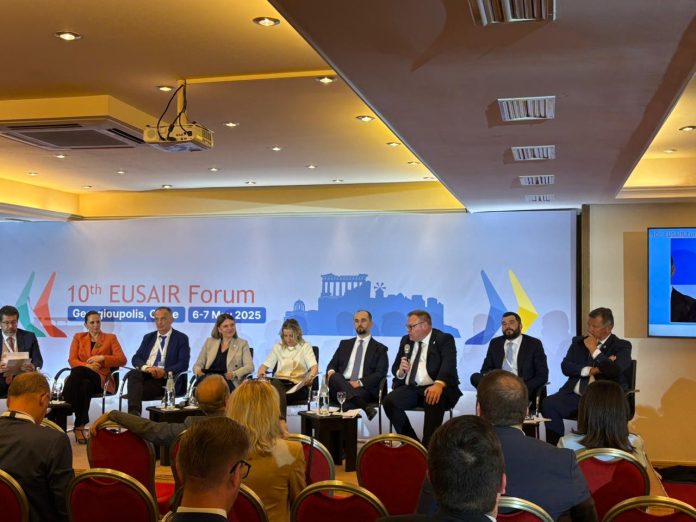The 10th Anniversary Annual Forum of the European Union Strategy for the Adriatic and Ionian Region (EUSAIR) was held on May 6th and 7th in Georgioupolis, on the Greek island of Crete.
Under the slogan “Bridging Horizons: Strengthening Cooperation, Resilience, and Cohesion in the Adriatic-Ionian Region,” the Forum gathered high-level representatives from EUSAIR member and observer countries, the European Commission, regional partners, and civil society members, marking a decade of joint efforts to enhance regional cooperation.
The Forum was officially opened with a high-level panel, where the State Secretary of the Ministry of Foreign Affairs of Montenegro, Ambassador Periša Kastratović, spoke on behalf of Montenegro.
The two-day event served as a platform for exchanging experiences and improving cooperation among various actors from the Adriatic-Ionian region. Key Forum topics focused on the region’s sustainability and resilience, with special emphasis on the blue economy, energy and climate change, environmental protection, and sustainable tourism. It was stressed that the future of the Adriatic-Ionian region lies in a strong and united European Union, as highlighted in the Crete Declaration adopted at the ministerial meeting within the Forum.
During the Forum, participants analyzed the Strategy’s achievements so far and discussed future priorities in line with the revised EUSAIR Action Plan.
As part of the Forum, the Adriatic-Ionian Interreg IPA ADRION cooperation programme organized an info day dedicated to the Second Call for project proposals. The event presented the programme rules, the project partner search platform, and examples of activities eligible for funding under this call.
EUSAIR covers ten countries: four EU member states (Croatia, Greece, Italy, and Slovenia) and six non-EU countries (Albania, Bosnia and Herzegovina, Montenegro, North Macedonia, San Marino, and Serbia). The overall goal of the Strategy is to promote economic and social prosperity and growth in the region by enhancing its attractiveness, competitiveness, and connectivity.
At the conclusion of the event, the end of Greece’s presidency of this macro-regional strategy was formally marked, and the presidency of EUSAIR for the coming year was handed over to North Macedonia.


